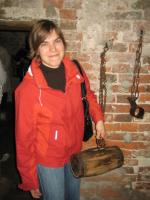Abstract
Abstract. While tags in collaborative tagging systems serve primarily an indexing
purpose, facilitating search and navigation of resources, the use of the same tags by
more than one individual can yield a collective classification schema. We present an
approach for making explicit the semantics behind the tag space in social tagging
systems, so that this collaborative organization can emerge in the form of groups of
concepts and partial ontologies. This is achieved by using a combination of shallow
pre-processing strategies and statistical techniques together with knowledge provided
by ontologies available on the semantic web. Preliminary results on the del.icio.us and
Flickr tag sets show that the approach is very promising: it generates clusters with
highly related tags corresponding to concepts in ontologies and meaningful
relationships among subsets of these tags can be identified.
Links and resources
Tags
community
@andreab's tags highlighted
- folksonomy
- tagging
- semanticweb
- semantic
- folksonomies
- web
- ontology
- semantic_web
- clustering
- 2007
- eswc
- integration
- imported
- collaborative
- ontologies
- folksonomy,
- ol_web2.0
- taggingsurvey
- toread_dbe
- master
- methods_concepts
- emergentsemantics_evidence
- toread
- my_thesis
- emergent_semantics
- tag\_clustering,
- social\_network,
- patterns,
- representation
- tags
- social
- annotation
- #tags
- #semanticweb
- #resources
- #folksonomies
- dblp
- citedby:scholar:timestamp:2017-12-17
- citedby:scholar:count:489
- semantics
- onlology-learning
- social_bookmarking
- conceptual\_analysis,
- semantic-web
- merging
- applications
- reticollab0708
- kmi





































